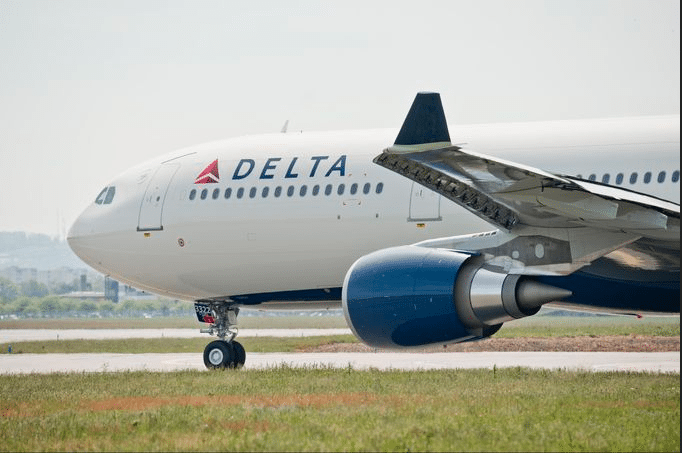
Chevron, Delta Air Lines, and Google have signed an agreement to test and track sustainable aviation fuel (SAF) and its emissions at Los Angeles International Airport (LAX), the companies announced on Sept. 7.
SAF is created from renewable feedstocks and is said to reduce emissions by up to 80 percent when compared to fossil fuels. SAF has caught the attention of many in the aviation industry because of its “drop-in” characteristics that allow a blend of SAF and Jet A to be used with no aircraft modifications.
In the new effort at LAX, Chevron will be creating a SAF test batch at its El Segundo Refinery and selling the product to Delta who will use it in its fleet at LAX, according to the companies.
“As aviation continues to define a more sustainable future, understanding the environmental impacts of our operations will be paramount as we look to mitigate climate change,” Amelia DeLuca, Delta’s managing director of Sustainability, said in a statement. “On top of being the first carbon neutral airline on a global basis, we’ve pledged to replace 10 percent of our jet fuel with SAF by 2030. This partnership has the potential to help us achieve that goal while providing important data and analytics that demonstrate the environmental integrity of our commitment.”
This project will then track and analyze emissions data from Chevron and Delta with help from Google Cloud, according to the companies. This is meant to be an effort to increase transparency.
“This MOU builds on our previously announced effort to be the first refiner in the U.S. to ratably co-process biofeedstocks in an FCC through a capital-efficient investment program,” said Andy Walz, president of Americas Fuels & Lubricants for Chevron. “The data sharing and transparency component of this partnership will help us better understand the emissions from sustainable aviation fuel production and delivery, supporting our goal to advance lower carbon fuels.”
The airline industry wants to have two billion gallons of SAF in the market by 2030. While many companies are looking towards SAF as a large contributor to meet sustainability goals, there is currently very little supply in the market to actually meet these expectations. The small supply of SAF in the market has in turn makes the fuels economically unsustainable because of their high price compared to traditional fuels.
“Right now, the cost of sustainable aviation fuel on its own without any incentives, if you will, would cost maybe four or five times that of existing petroleum fuels and that’s not sustainable for the industry,” Valerie Reed, the acting director of the bioenergy technologies office at the Department of Energy’s Office of energy efficiency and renewable energy, told Aviation Today in August.
To meet these large sustainability goals using SAF, there will need to be the infrastructure to process and distribute large amounts of these fuels. Companies like Chevron have the advantage of having the industrial capabilities already in place. Neste, a renewable and circular solutions company, has already proven that traditional factories can be converted for this work.
“In the form of proof of concept, Neste has accomplished it…We’re using a conventional refinery, we retooled the conventional refinery, we use common transportation and logistics such as pipelines, marine transportation, and even road transportation, where applicable,” Chris Cooper, VP of Renewable Aviation at Neste, told Aviation Today in August. “We also use infrastructure such as terminals or blending facilities that we need and common pipelines.”